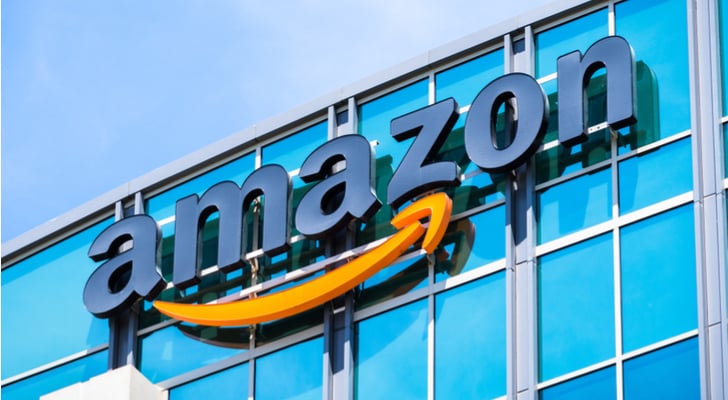Investors love to speculate about which company Amazon (NASDAQ:AMZN) should buy next. As if this one deal is going to vault Amazon stock to $2,000 and beyond. Acquisitions generally don’t have that kind of power.
That said, AMZN stock is up 68% since announcing June 16, 2017, that it was buying Whole Foods, and that’s with a significant selloff in the fall. So, maybe in the case of Jeff Bezos, it is worth speculating about whether it should buy Company A or Company B.
Company A, in this case, is FedEx (NYSE:FDX), a company whose stock is reeling despite a 10% gain in January. The fact is, FedEx stock hasn’t been this low since September 2016. Regarding timing, Amazon couldn’t pick a better time to acquire the $59 billion company.
The First Question Is Why?
Amazon’s goal is to sell you everything in your home. Or at least it’s an argument I made last March.
“Imagine that you’re a fly on the wall in an Amazon board meeting and Bezos suggests that the company’s reason for being is to own the American home from soup to nuts. The self-help gurus always say that when you have a specific purpose, every decision becomes easier to make because you know when to say yes and no to possible opportunities, experiences, etc.,” I wrote Mar. 2.
“Apply this to Amazon and the Ring purchase becomes a no-brainer. Is this $1 billion acquisition going to help us get closer to our purpose of owning the American home? Of course, it is. Write a check.”
Of course, writing a check for Ring at $1 billion is a lot easier than writing a check for $59 billion or more to acquire FedEx.
So, why do it?
One word: Logistics.
To win the battle for the home, Bezos needs to create an end-to-end solution that vertically integrates the entire e-commerce loop. You’ve heard and read the discussions about the last mile.
Well, FedEx might be considered less about the last mile and more about the first thousand, but you can be sure Fred Smith is kept up at night trying to come up with the best FedEx solution to this problem. A problem that Amazon shares.
“Last-mile grocery shipping costs can make up 12 percent of revenue,” Morgan Stanley analyst Brian Nowak recently wrote. “Improved delivery efficiency and throughput through digitally locked, temperature-controlled Amazon in-home boxes or mini ‘Amazon receiving rooms’ could materially help Amazon drive higher long-term profitability even as grocery grows in the mix.”
While there are ways for Amazon to solve the issue at the final destination, it’s still an expensive proposition to get there, one that could be shared if it bought FedEx.
At an enterprise value just 6.5 times the company’s forward EBITDA, Loop Capital Markets analyst Anthony Chukumba believes FedEx represents an inexpensive (relatively so) way to become a leader in the shipping business.
The Second Question Is Why Not?
Other analysts aren’t so sure that the threat from Amazon is so dire that FedEx stock won’t return to the $200s where it spent most of 2018.
“The company noted that the big retailers have figured out how to use their thousands of brick and mortar locations as strategic assets–whereby stores are becoming mini-fulfillment centers … FedEx believes that it is uniquely positioned to serve this market, which also provides it with an opportunity to sweat its assets,” Credit Suisse analyst Allison Landry recently stated in Barron’s.
She’s got a $236 price target and an outperform rating on the stock suggesting it’s facing the issues which plague the company.
What’s that got to do with Amazon buying it? Plenty.
If you think Fred Smith is going to sell his baby for $175 a share — to Amazon or anyone else for that matter — than you probably don’t know Fred Smith too well.
“I think the prospects that this company is going to be ‘disrupted,’ which just occurs over and over again, to quote a previous statement, is fantastical,” FedEx CEO Fred Smith said to investors on a call in December. “So I’ll leave it at that.”
While the argument as to why Amazon should consider buying FedEx is an understandable one, the cost to Amazon both financial and otherwise (time, loss of focus, etc.) is likely too high. There’s a lot it can do with $59 billion in areas related to the home that is significantly more profitable.
Amazon’s current long-term debt is approximately $24.7 billion. On a net debt basis, it’s $4.2 billion. Adding $40 billion in debt to buy FedEx will significantly weaken the company’s balance sheet at a time when a recession is looking more likely by the day.
In that scenario, Amazon would face a double hit to its e-commerce business as well as FedEx’s. That’s not a winning combination.
The Verdict for Amazon Stock
Jeff Bezos isn’t the wealthiest person on the planet for no reason. If he thinks it’s a good idea, then it probably is.
That said, I don’t see him pulling the trigger on this type of deal until he has a better idea whether it’s necessary.
We’re not there yet.
As of this writing, Will Ashworth did not hold a position in any of the aforementioned securities.

